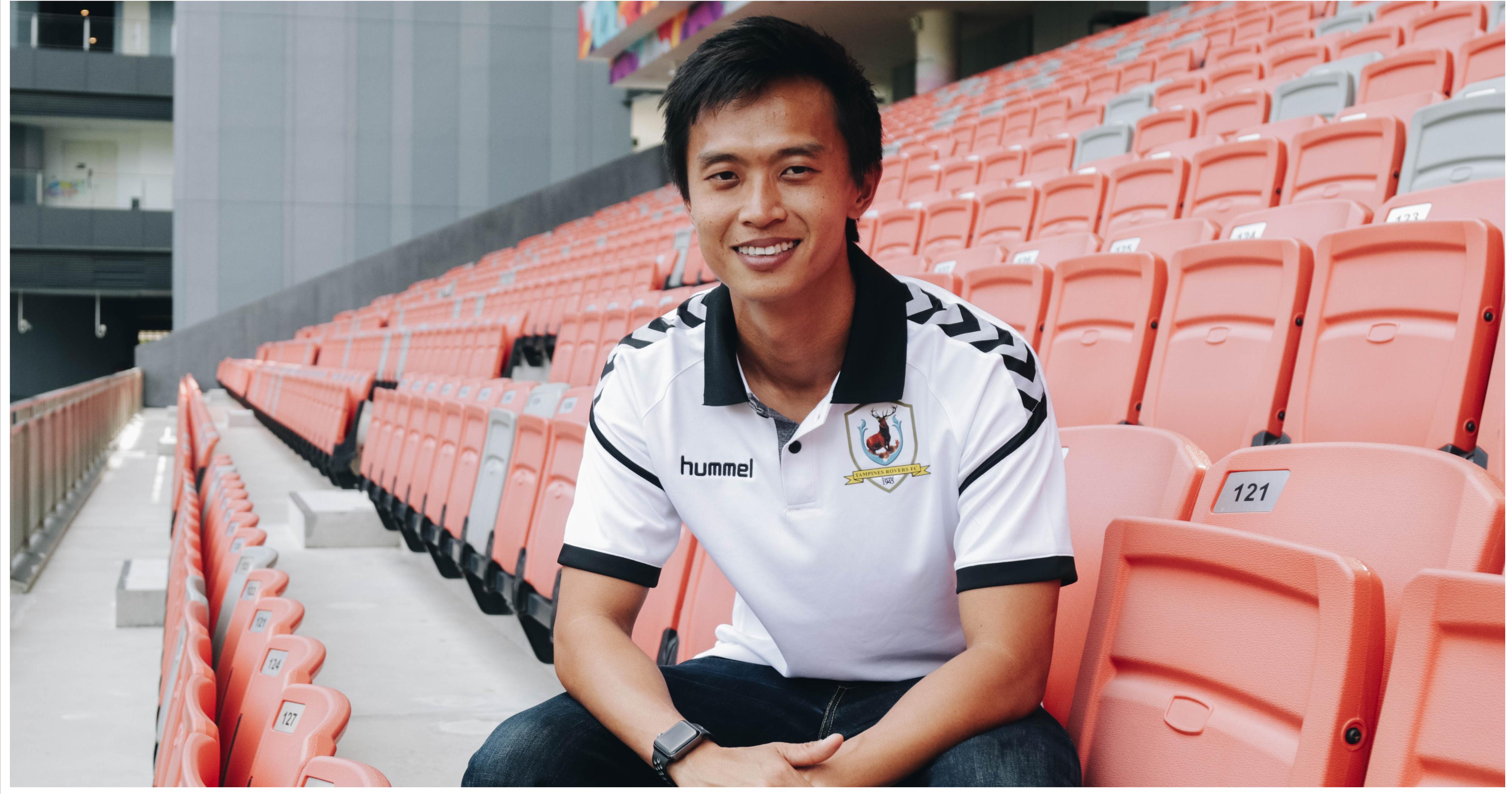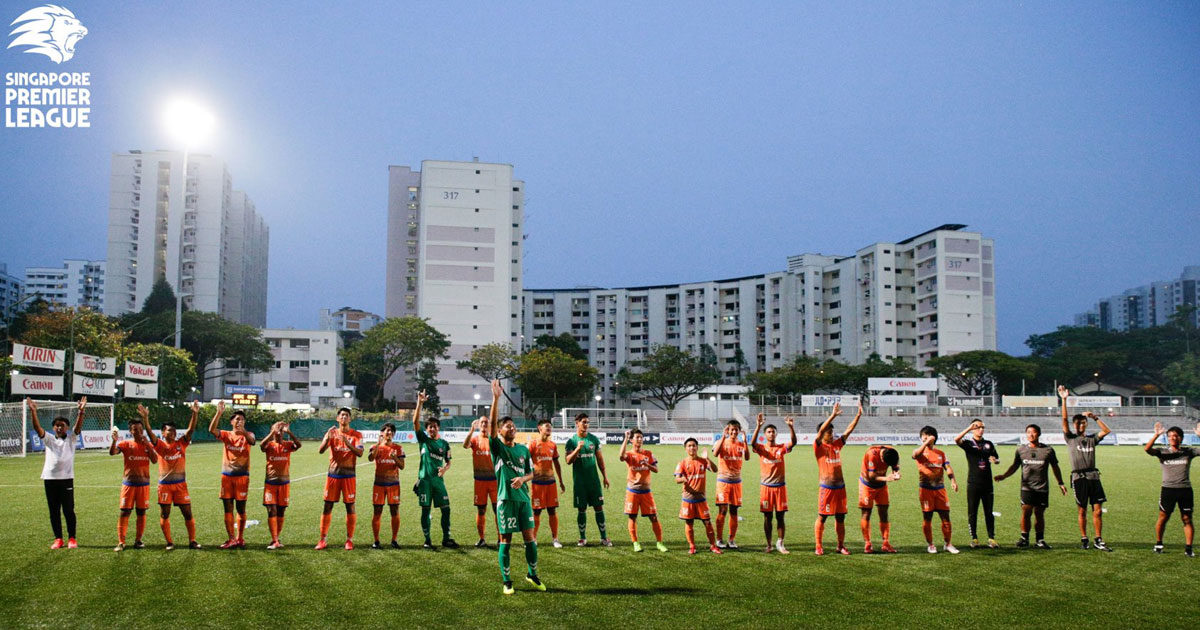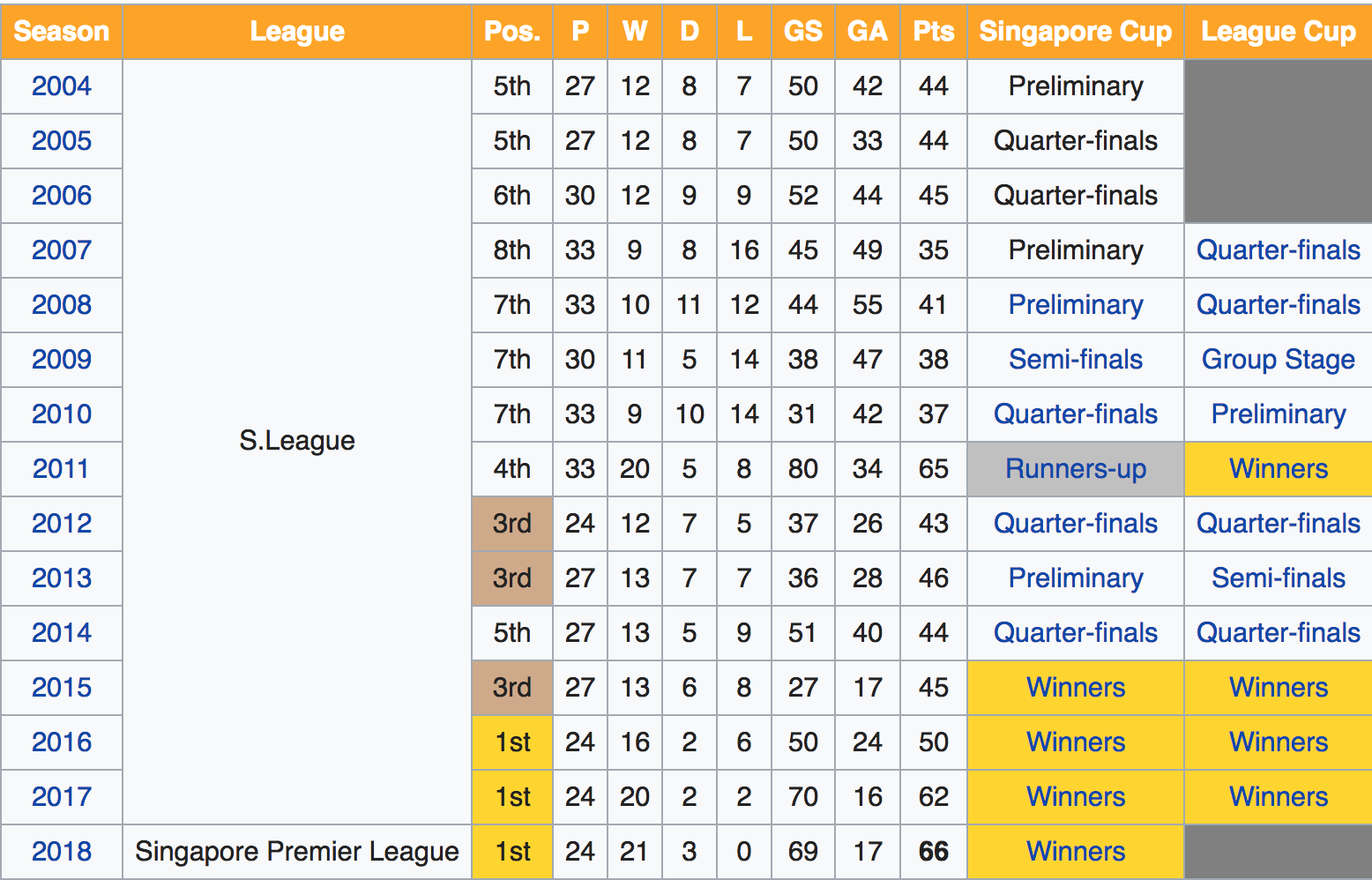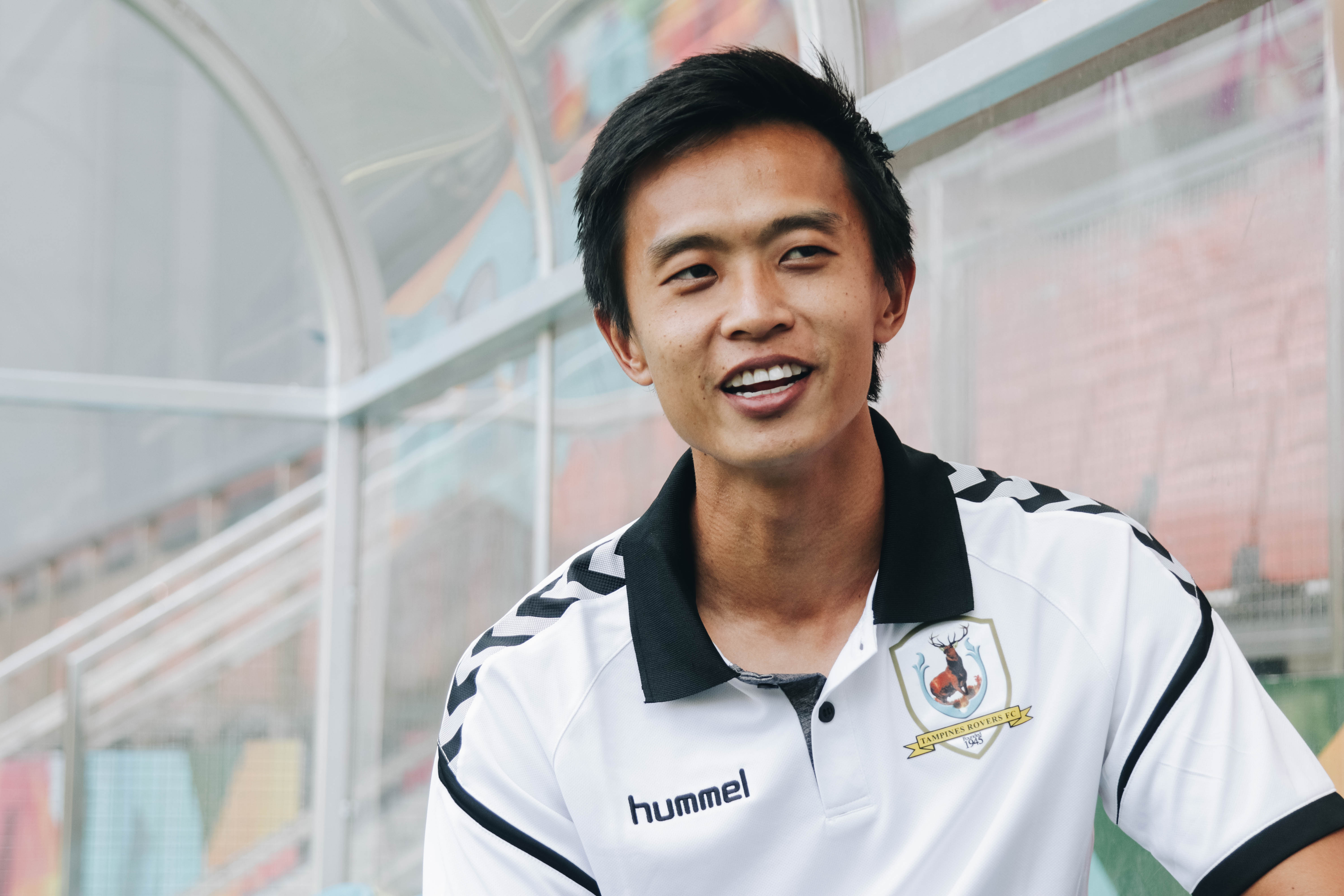When he was much younger, Gavin Lee would often walk from his block at Tampines Central, pass through Tampines interchange, and make his way to Tampines Stadium for football training.
He played for the Tampines under-8s, as well as the under-10s, teams that his father coached at the time.
Now, almost two decades later, 28-year-old Lee is helming the Tampines Rovers' senior team for the latest Singapore Premier League (SPL) season.
A new challenge
Through a mixture of playing for the team, having his father coach the youth team, and staying in Tampines, Lee quickly became an ardent Tampines Rovers supporter.
In his youth, Lee went all over Singapore watching them play.
"They used to have a bus for fans and supporters, and we used to follow and I saw many Tampines teams."
He recalls names that might still strike a chord with some of the more dedicated S-League fans back in the day, like Mirko Grabovac, Mustafic Fahrudin, Marco Antonio and many more.
Some of these players were instrumental in helping Tampines lift the trophy twice in the noughties, and three more times earlier this decade.
And as a Tampines boy, he appreciates what winning will mean for Tampines Rovers, and for him.
"As a Tampines boy, I feel a bigger attachment than when I was with the Warriors. I'm professional about it, but there's an even bigger attachment, even bigger desire to win it with Tampines."
It has by all means been a successful decade for Tampines, winning the league thrice, and coming in second place another four times.
However, there is quite the elephant (or if you would prefer, a rather large swan) in the room.
Japanese team Albirex Niigata, also known as The White Swans, have handily placed these lofty achievements somewhat in the shadows with their recent success in the league.
They have won the league three times in the last three years, and they even secured their latest league triumph a full three months before the season ended.
Lee acknowledges the growing behemoth that stands between them and the SPL title, but reveals that the added challenge is what make things interesting.
"The longer a Singapore club doesn't win it, personally, the hunger to topple them is even bigger, it grows. We spoke at a team meeting yesterday, we need to embrace these challenges, we should want to beat them."
But lost in their recent success, it's easy to forget that Albirex went on a 12-year stretch without winning the league even once.
Why did it take so long? And why have their efforts only recently started paying dividends?
It lies in their culture
While Albirex has the luxury of picking from a wider field of talent — they hold trials in Japan every year to suss out promising young players — there is no doubting the culture they implemented has played a huge part in their recent success.
Adam Swandi, one of the first Singaporeans to play for Albirex, commented on this very culture when he started playing for the Japanese outfit.
“Training was really hard and tiring initially, but thankfully I have adapted to the team with the help of my teammates and coaches at the club.
It also helps that the style of football is something I really like and I’m enjoying every single minute of it.”
Lee understands the importance of both these aspects.
He tries his hardest to make training fun and engaging.
"They must enjoy what they do. So, yes we want to win games, we want to develop, they must enjoy coming to training, they must enjoy coming to compete with each other, they must enjoy the sessions."
After all, an added downside of training being a chore for the team is that more effort will have to be channelled into motivating the players instead of focusing on other aspects of the game, such as tactics.
The need to streamline and cut down re-learning also presents a challenge for the club's youth players, Lee adds.
"A new coach coming in will have his set of philosophy and ideas, and it might not be something ingrained in the younger players."
Which is why the recent partnership between Tampines Rovers and Junior Soccer School and League Singapore (JSSL), the private football academy that blooded Ben Davis, might be a game changer.
Lee explains why having a solid youth foundation is essential for success.
"When you get the culture, you don't need to keep re-teaching the players. Because if the foundation is strong, more emphasis can go into teaching them other important aspects of the game, like tactics."
The hope is that if a consistent ideology can be instilled to the youth players, the need to re-learn things will be minimal.
Having worked in JSSL for over 10 years, youth football is undoubtedly close to Lee's heart.
He effortlessly rattles off names of the various JSSL academy graduates scattered around the SPL, and the world, three of whom (Akmal Azman, Joel Chew, and Zakri Ee) are currently plying their trade with Tampines.
Which brings up a compelling dilemma.
Win now, or win later?
One key issue that gave rise to a vicious cycle that plagues Singapore teams, and arguably the Singapore national team as well, is the incessant need to win now.
You could point to a multitude of factors, both societal and individualistic, that plays up this mentality.
Short-term goals like the infamous Goal 2010, where Singapore aimed to make it to the World Cup by 2010, led to that very win-now mentality.
This focus arguably saw youth development overshadowed in favour of bringing in more established foreign players.
In came foreign imports under the Foreign Talent Scheme: Shi Jiayi, Qiu Li (both China), Egmar Goncalves (Brazil), Agu Casmir, Precious Emuejeraye (both Nigeria) and more, at various points.
While that did lead to great success in ASEAN football, Singapore ultimately made little headway in the world, or even the region.
Perhaps if the goal for 2010 was just to develop and emphasise a strong youth system that saw more young blood being pumped into the league, Singapore football would be in a far better position now.
Or maybe it wouldn't.
That is the conundrum Lee has to deal with as the new head honcho of the Stags.
He does believe, though, that he will be able to find a middle ground in the hunt for success, and the development of a future.
"Here's the challenge about development and being competitive at the same time: where do we draw that line? Are we down that philosophy route where we are all about development? ... My challenge as a coach is to ensure we are competitive, we get the performance that we need, but at the same time we are bleeding these young ones in."
Having a goal is important to gauge the development of a club, or any organisation really, but blanket statements insinuating that a particular year will be the year you achieve a particular goal is a dangerous mentality to adopt.
Lee acknowledges the variance an issue like development can entail.
"We have a multi-year project. It's very hard to put a time on development, everyone assumes its a linear curve, but it's not."
There's no doubt foreign players are, mostly, at a higher level than young Singaporean players, by virtue of age and experience.
The need to develop these young local players thus might be seen as an unneeded luxury in the pursuit of success, resulting in a compromise in a club's investment in its youth.
This is where Lee, who has been steeped in youth football both as a player and as a coach, comes in.
Passion
From his two year stint in the Tampines youth team, becoming a league-winning assistant coach with Warriors FC in his early 20s — incidentally the last time a local club has won the league — to now being handed the keys to his childhood club, two things have remained consistent for Lee.
1. His commute
He still walks from the central area of Tampines through Tampines Junction to get to the stadium, although instead of the five-minute commute he had when he was staying with his parents, he now takes six minutes, because he's staying with his grandparents, who also stay in Tampines.
Nice.
2. His passion for the game
Throughout our chat, Lee repeatedly mentions the importance of passion and drive in the game of football.
He speaks highly of his time in Buenos Aires, Argentina, where he met young players who staked their entire lives on the beautiful game.
Lee of course acknowledges that circumstances are vastly different in Singapore, and it would be unrealistic to expect the same kind of passion and dedication among youth players in Singapore.
"That's their way out. They will do everything to succeed. They will sleep over at the club itself."
In Buenos Aires, football might be the only thing that can help some of these boys escape poverty, a situation young Singaporean boys understandably can't quite empathise with.
"The problems we face here might not be the same problems an Argentinian boy in Buenos Aires face, so we have to find a different way to motivate these boys compared to other places in the world."
Which means it's paramount to not view passion in an almost ladder-like manner. It comes in many forms, and is ultimately pointless to rank.
For Lee, it started with him wanting to play for the English Premier League when he was a young boy training with Tampines.
It might culminate this year with him bringing the trophy back to his boyhood club.
Building the Tampines culture
It takes time to build a culture that is unique to a club — just look at Albirex, who took the better part of 12 years to develop a rock-steady foundation and culture here.
But Lee seems to have hit the ground running in terms of delivering results.
Tampines has won all three games they've played since he's taken over, including a recent 5-1 trouncing of Home United.
But a win does not a season make.
Rushing that winning mentality and culture might result in major setbacks in the long run, an inevitable outcome when choosing to trade future prospects for short-term gains.
Questions of how to present that vision of the club to the fans, the players, and the general public so that they buy in to that vision will undoubtedly come up in the upcoming season.
It might take a while for Lee to develop his own version of what the Tampines Rovers should be, and to realise that vision with his players.
Luckily for Lee, he's had 28 years in Tampines to think about it.
Top photo by Rachel Ng
If you like what you read, follow us on Facebook, Instagram, Twitter and Telegram to get the latest updates.



